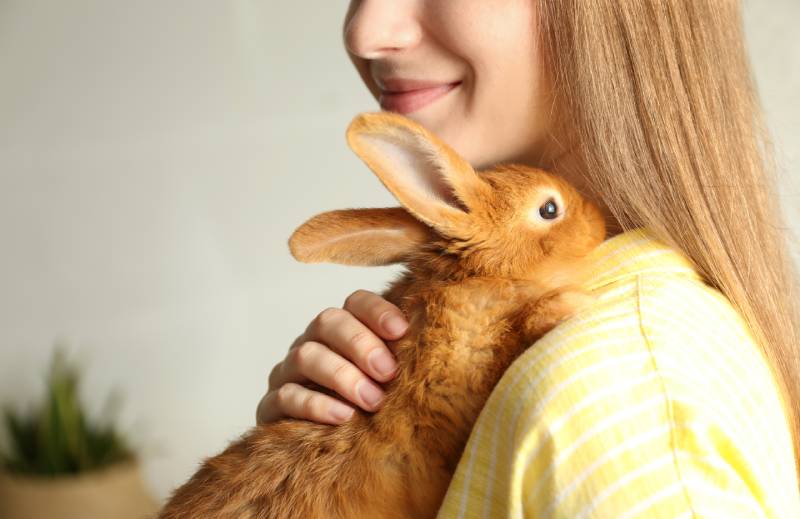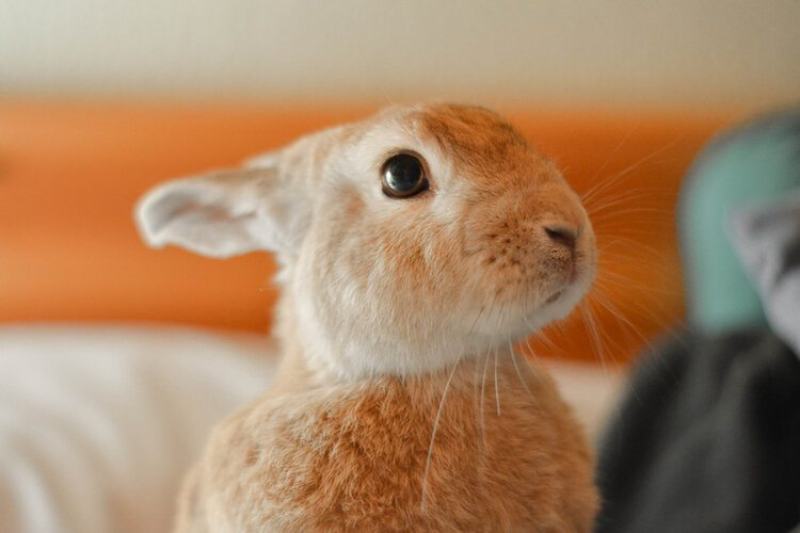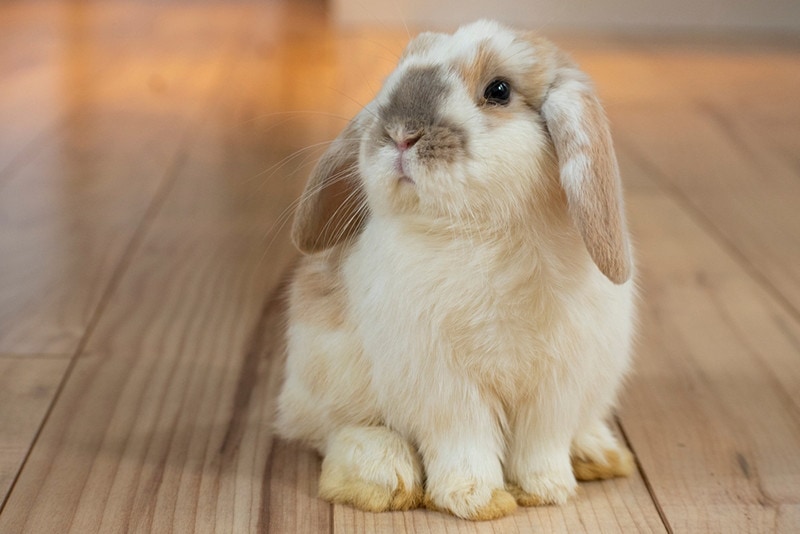How Long Do Rabbits Live As Pets? Vet-Approved Tips for Proper Care
Updated on
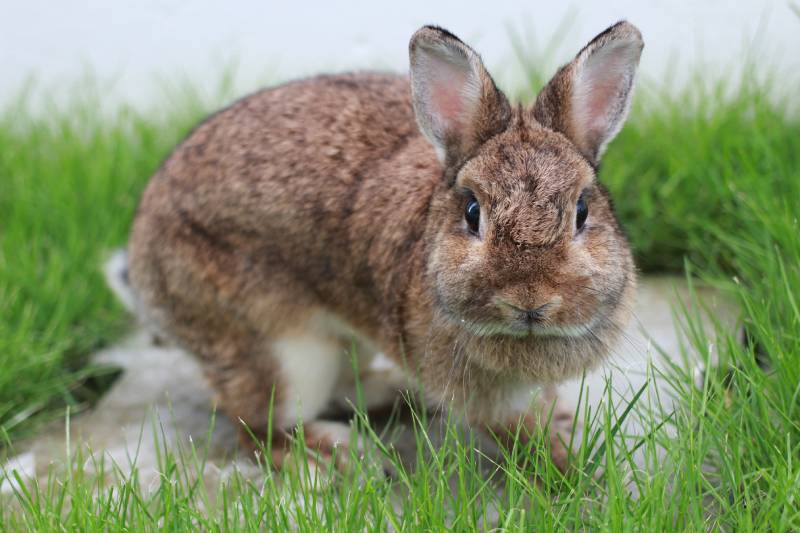
Click to Skip Ahead
Surprisingly, over half of all the small animals owned as pets in America are rabbits, making them the 6th most common pet in the country. One vital question to ask if you’re adopting is how long rabbits live as pets. On average, rabbits live between 5 and 8 years based on their breed, environment, food quality, genetics, and other factors. That being said, pet rabbits can on occasion live much longer than these average estimates, with a confirmed report of an individual who lived to be almost 19.
As a future rabbit owner, knowing as much as possible about the gentle creatures is a must. That includes, for example, whether rabbits love their owners, if they make good house pets, and if they can be potty trained. Read on to find the answers to these questions and several more, plus invaluable tips and advice to help you on your journey as a rabbit parent.
Do Rabbits Make Good Pets?
Many people believe young children can handle owning a rabbit, but rabbits are more fragile and prone to injury than you might imagine. For example, a child could accidentally drop and hurt a rabbit severely. Many kids unknowingly play with their rabbits too roughly, which often results in scratching and biting. Unfortunately, when that happens, thousands of rabbits are inevitably brought to animal shelters and left there.
Rabbits make excellent pets for older, mature kids and, of course, caring adults. A rabbit that’s well cared for and gets a lot of attention can make a terrific, affectionate pet. They’re beautiful, inquisitive, and even silly! For the right person, a rabbit can be an ideal pet.
Should Rabbits Live Outside or Inside?
Rabbits raised as livestock are typically raised in outdoor hutches, which is 100% normal. However, a pet rabbit is quite different, and most breeds of rabbits raised as pets are far different from their livestock cousins. For starters, rabbits are social animals and enjoy being near people. They don’t tolerate extreme temperatures well, especially the cold.
Another big drawback to keeping your rabbit outside is that noticing subtle changes in their health might not be possible. You could overlook a health issue that wouldn’t have happened if your rabbit lived indoors. The worst, however, is that predators have been known to scare rabbits so much in an outdoor hutch that they die from fright. That’s why rabbit experts recommend keeping your pet rabbit indoors.

Are Rabbits Easy or Difficult to Keep Clean?
It’s surprisingly easy to keep a rabbit’s hutch or pen clean with just a little effort. Also, you won’t need to worry about cleaning your rabbit because they do an excellent job of cleaning themselves. Even better, most rabbits use the corner of their cage when they go potty, making it easier to clean up. You should know that, like all pets, cleaning up after your rabbit will likely be a daily task. Adopting a rabbit might not be a good choice if you don’t have the energy or time for that.
What’s the Best Food for Rabbits?
Although fans of Bugs Bunny might believe that rabbits adore carrots, the best food for bunnies is hay. Eating hay ensures your bunny’s gastrointestinal (GI) tract stays healthy, and carrots should only be given to them occasionally as a snack.
Veterinarians recommend keeping an unlimited supply of fresh hay available for your rabbit at all times. Rabbits should also be fed ¼ to ½ cup of high-quality rabbit pellets per day and green, leafy vegetables like lettuce, kale, and carrot tops. However, all of those other foods are second to fresh hay.
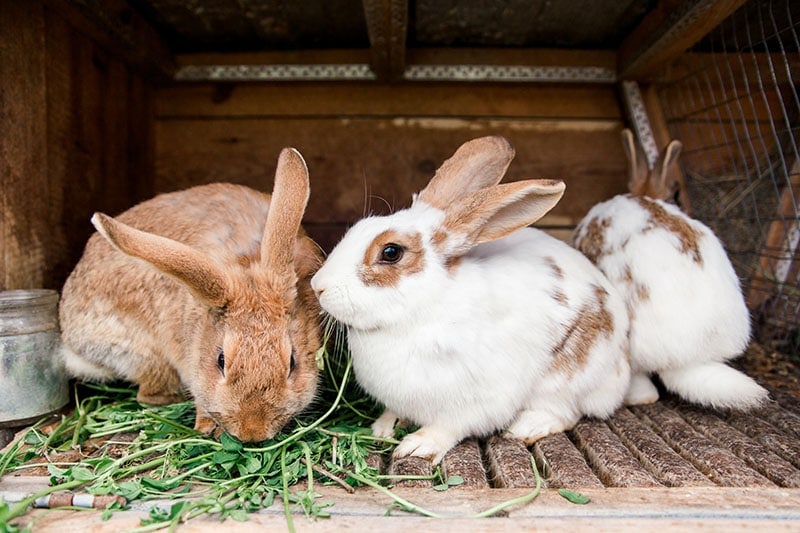
The 6 Signs That Rabbits Enjoy Your Company
If you’ve never owned a rabbit, you might be surprised to learn that they’re affectionate animals. Do rabbits love their owners? Love can be a tricky thing to determine, but it can undoubtedly be said that rabbits enjoy being around their family.
Once your rabbit has become accustomed to you and other family members being around, feeding it, petting it, and so forth, things will change. Don’t be surprised if your rabbit suddenly starts acting more like a cat and approaching you often to get some quality time. How can you tell your rabbit likes and maybe loves you? Check out the signs of it below.
1. Your Rabbit Starts to Groom You
Usually, they will lick you or your clothing, which shows they care as much about you as other bunnies.
2. They Get the Rabbit Zoomies
Like dog zoomies, when a rabbit runs around like a nut and jumps in the air, it’s a good sign that they like you and are happy to see you.
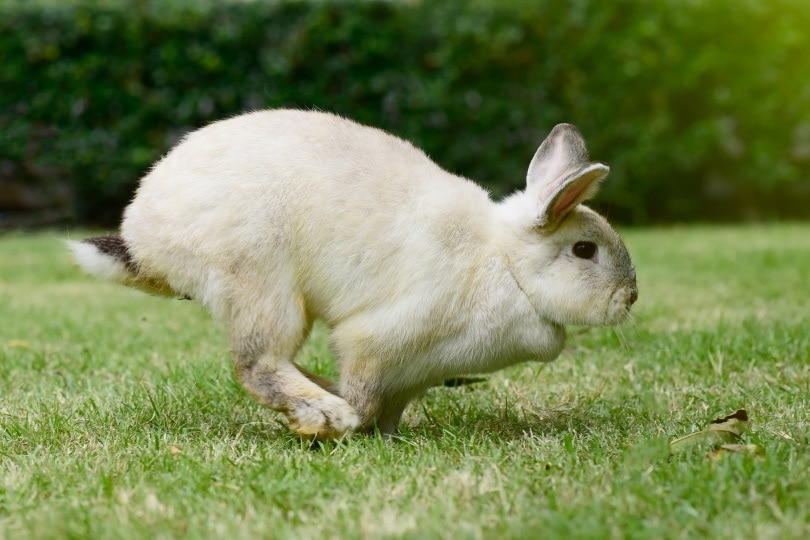
3. Your Rabbit Is Running Around in Circles at Your Feet
Bunnies will do this when they get excited, like when you’ve just arrived home, or you’re feeding them.
4. Your Rabbit Sprawls on The Floor at Your Feet
This is a dangerous thing to do in the wild because it leaves the animal vulnerable to attack. If they do it at home, odds are your rabbit likes and trusts you implicitly.

5. Your Rabbit Is Purring
No, not like a cat, but close. When happy, rabbits click their teeth quickly, which makes their head vibrate and sound similar to a purr.
6. Your Bunny Asks You to Pet It
If your bunny is coming to you and nudging you to ask for some petting time, you can be sure they like you and trust you.
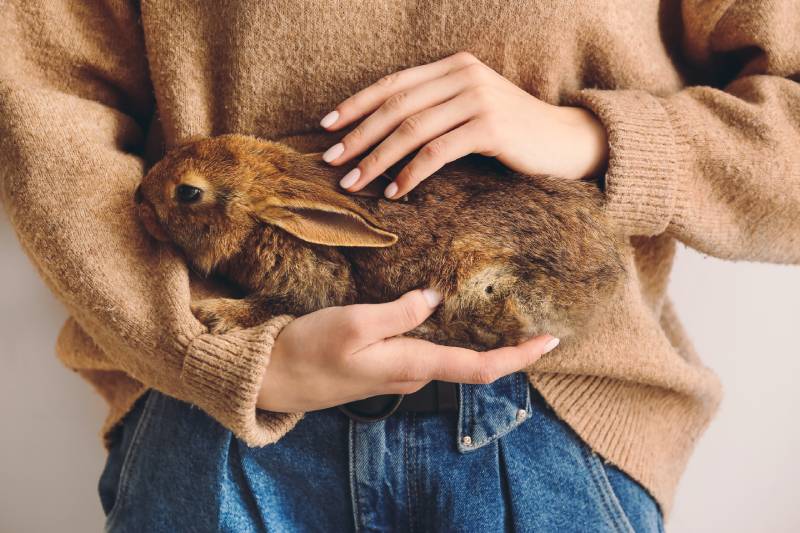
Can You Leave a Rabbit Alone for 8 Hours?
If you want to adopt a rabbit but have a busy schedule, you should know that leaving them alone for more than 6 to 8 hours at a time isn’t a good idea. Veterinarians recommend no longer than 3 to 6 hours at most, but that might not be possible in this day and age. Whatever the case, it’s never recommended to leave a rabbit alone for more than 24 hours because they can die if they don’t eat.
Do Rabbits Smell Bad?
Rabbits are relatively clean animals that groom themselves quite well. However, their urine has a pungent odor. As long as you spot-clean their hutch or living area every 2 or 3 days and give it a complete cleaning once every 7 to 10 days, strong odors shouldn’t be a problem.
Can Rabbits Be Potty Trained?
With a little patience and persistence, most rabbits can be potty trained, which, you’ll agree, is better than the alternative. You should note, however, that when rabbits haven’t been spayed or neutered, they will mark their territory like a dog or cat. Also, as with dogs and cats, positive reinforcement is a better way to potty train your rabbit than negative reinforcement.

Final Thoughts
While rabbits in the wild have very short lives, a pet rabbit generally lives between 5 and 8 years; some have been known to live up to 12 years. That’s a long time and equal, or greater than, the lifespan of many dog breeds. Of course, providing your rabbit with a healthy, happy home, high-quality food, and regular veterinary care are all essential to ensuring they live a long life. The information we’ve provided empowers you to do that and have a long and prosperous relationship with your rabbit.
See also:
Featured Image Credit: CART00N, Shutterstock



